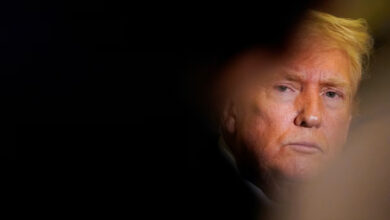Abu Dhabi–Gulf Arab leaders are to hold a summit Monday with their concerns over Iran’s nuclear ambitions exposed, courtesy of WikiLeaks, and at a time of economic relief as a result higher oil prices.
The annual summit of the six-nation Gulf Cooperation Council (GCC), grouping Bahrain, Kuwait, Oman, Qatar, Saudi Arabia and the UAE, is being hosted this week in the UAE capital of Abu Dhabi. Gulf security is expected to dominate the summit.
US diplomatic cables published by whistle-blowing website WikiLeaks have exposed widespread concern among Iran’s neighbors in the Gulf over Iran’s suspected efforts to develop nuclear weapons.
Saudi King Abdullah was quoted in one cable as saying the United States should “cut off the head of the snake,” in reference to the Islamic Republic.
A partner in the GCC, Bahrain’s King Hamad told US General David Petraeus that Iran’s controversial nuclear “program must be stopped…The danger of letting it go on is greater than the danger of stopping it.”
“Dismayed” by the leaks, the GCC petromonarchies will now doubt Washington’s “ability to keep their secrets,” said Abdel-Khalek Abdullah, a professor at the United Arab Emirates University, even if their views were widely known.
“Besides a few disturbing remarks,” the cables did not reveal any exclusive secrets, he said.
In a joint news conference with US Secretary of State Hillary Clinton during a security conference in Manama last week, Bahraini Foreign Minister Khaled bin Ahmad al-Khalifa said every Middle East country had the right to nuclear power.
“We do believe every country in the Middle East has a right to nuclear power for a peaceful use. We say it publicly; we say it privately,” the foreign minister said.
But Abdullah, the professor, stressed that Arab states in the Gulf were “very, very worried” by Tehran’s policies, as highlighted in the leaked cables.
Tehran, for its part, has tried to garbage the cables and to calm its neighbors’ fears, with the Iranian foreign minister saying Saturday that Tehran would never use force against a Muslim neighbor.
Manouchehr Mottaki’s pledge in the Bahraini capital came two days before Iran is to sit down with world powers in Geneva for the first time since October 2009 for talks on its nuclear program.
The GCC countries will “never allow an imbalance of forces in the region in Iran’s favor,” said Abdullah.
According to the Emirati analyst, Iran’s ambitions have triggered “an arms race” in the region, prompting the Gulf monarchies to sign military contracts worth an estimated US$120 billion over the next five years.
Publicly, GCC officials call for a political solution to the standoff between the West and Iran, which insists it has the right to nuclear technology and denies any ambition to develop an atomic bomb.
“Why do Western countries think that the Iranian issue concerns them alone?” UAE Foreign Minister Sheikh Abdullah bin Zayed al-Nahayan asked at the Manama conference. “Any solution with Iran should come from the region, and the GCC countries should have a role in these negotiations,” he said.
At their two-day summit in Abu Dhabi, Gulf leaders are also expected to discuss the growing Al-Qaeda presence in Yemen, from where militants also infiltrate Saudi Arabia to carry out attacks.
Iraq also figures on the agenda, with GCC countries worried that the scheduled US military pullout by the end of 2011 could create a vacuum, according to Abdullah.
On the economy, the GCC nations, which sit on 45 percent of the world’s proven crude oil reserves and around one fifth of its natural gas, have welcomed the recovery of oil prices to more than US$80 a barrel.
Signs of recovery from the global financial crisis, which drowned several major Gulf investment firms in debt, have also surfaced. “The year 2011 will mark the return of economic activity in the Gulf,” predicted Abdullah.
In the run-up to the summit, the small but gas-rich GCC state of Qatar won the bid to host the 2022 football World Cup, sending its stock market surging 7 percent at the opening Sunday.




